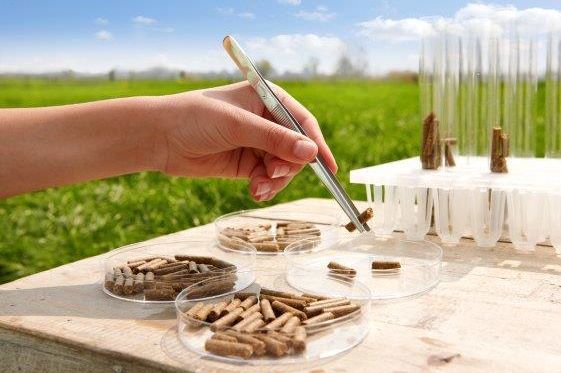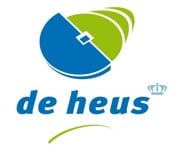
The process starts with the procurement of raw materials. These are purchased only from approved suppliers; suppliers are audited by a team of experts to ensure De Heus’s international and local standards are met. Purchased materials must adhere to the local law (Act 36 of 1947) and to internal corporate standards which are set by De Heus in the Netherlands. These corporate standards are developed in line with the European Union legislation as well as GMP+ standards. Suppliers or materials which do not match our quality standards are rejected. All deliveries of raw materials are verified upon delivery whereby critical raw materials are analysed via our NIR system to ensure conformance to our quality standards before offloading.
Internal systems
There are also several internal systems which we have put in place to ensure that the feed produced in our facilities meet the specifications under which they are sold and also that they do not have any harmful effects on animals or even on human beings at the end of the food chain. Our production facilities are tested annually according to prescribed procedures to ensure that production equipment is capable of producing quality products. Facilities are tested for homogeneity of mixing and to investigate if there are unacceptable levels of carryover in production processes which could be hazardous to sensitive species. In conjunction to this, proper production planning protocols are in place to ensure that feed produced meets legal and customer requirements. Microbiological testing is carried out on the production facilities and on some raw materials & finished products to ensure that no harmful microbiological contamination has been introduced into the food chain.
On-going analysis
Levels of medication (customer requests) in feed are monitored monthly according to an analysis schedule to ensure that proper dosing has been done. Stocks of medications or critical micro-ingredients are reconciled daily to ensure correct usage and dosage. There is also an analysis schedule in place to determine if there are any undesirable substances or high risk raw materials in feed. Some examples of undesirable substances are melamine, heavy metals and dioxins. These substances are measured on a routine basis to ensure conformance to the law and to ensure that no hazards have been negligently introduced into the food chain. Mineral analysis is also done on a routine basis to ensure the correct levels of minerals in feed and raw materials, as it may cause problems in certain species of animals if the balance of minerals is not at the required levels.
Quality checks
Before finished products leave the premises and are delivered to our customers, all loads are sampled and analysed via our NIR system. This gives us a quick check to verify that the quality of our product is within the specified quality limits. Anything that does not comply with required specifications is rejected. This is but one more step to ensure that we constantly produce safe feed.
ISO 22000 compliant
All our branches are now ISO 22000 compliant and go through annual compliance audits with RiskZA to ensure adherence to the standard. This is an internationally recognized standard for controlling food safety hazards and is a good business practice resulting in continuous improvement of our processes. Furthermore, it shows management’s commitment to provide our customers with the best quality product which meets their requirements. The implementation of the ISO standard and our in-house controls further demonstrate De Heus’s on-going commitment to food and feed safety, because we understand that ultimately our customers’ products end up on our tables.
